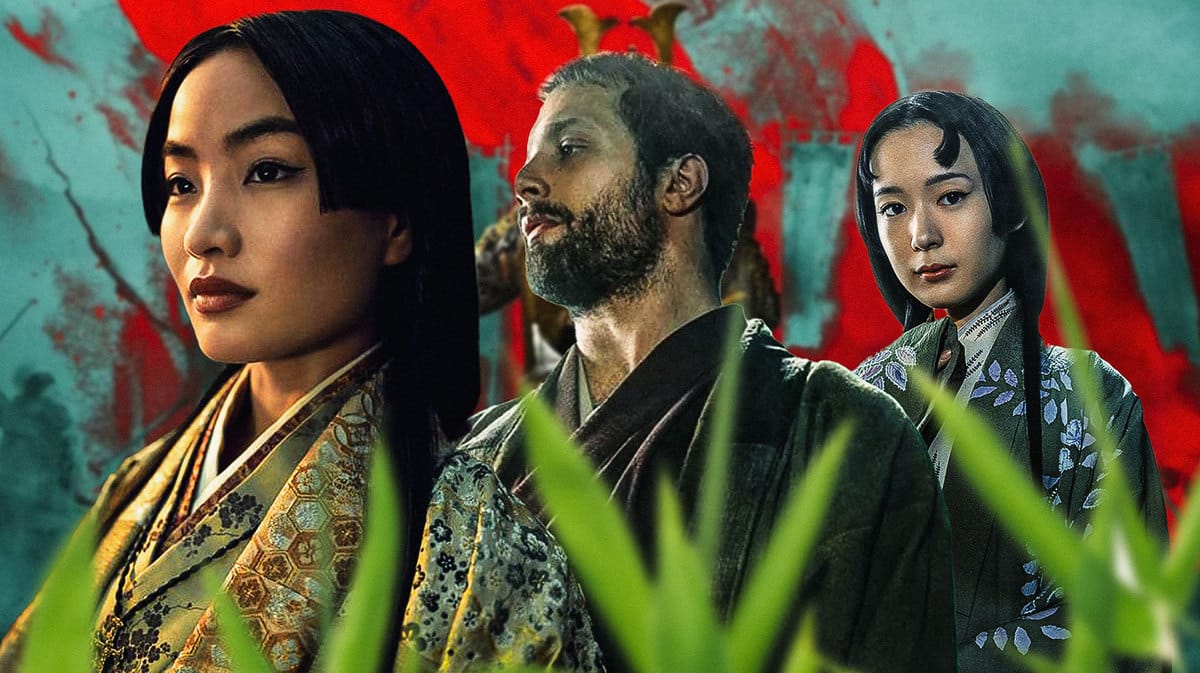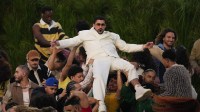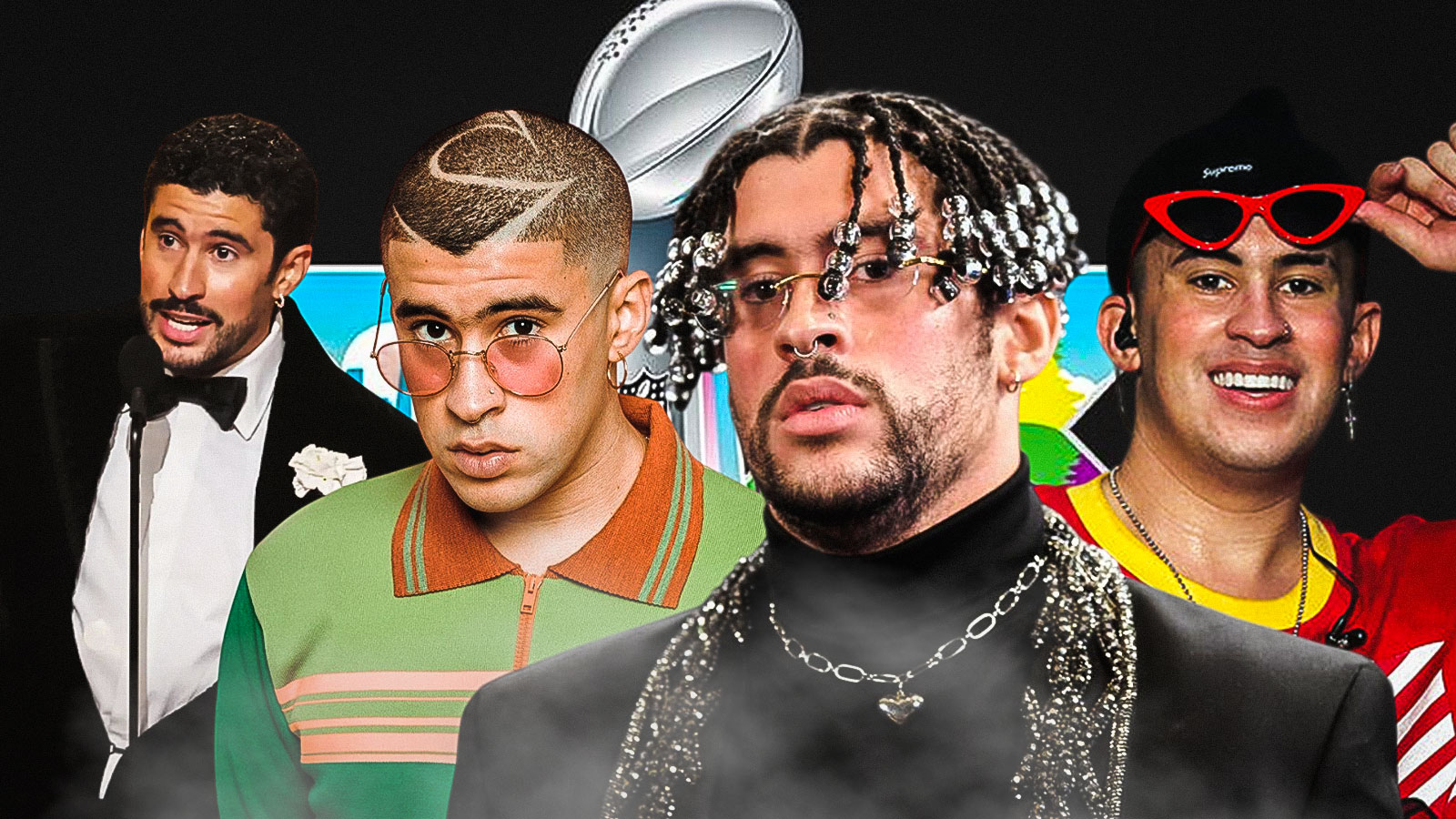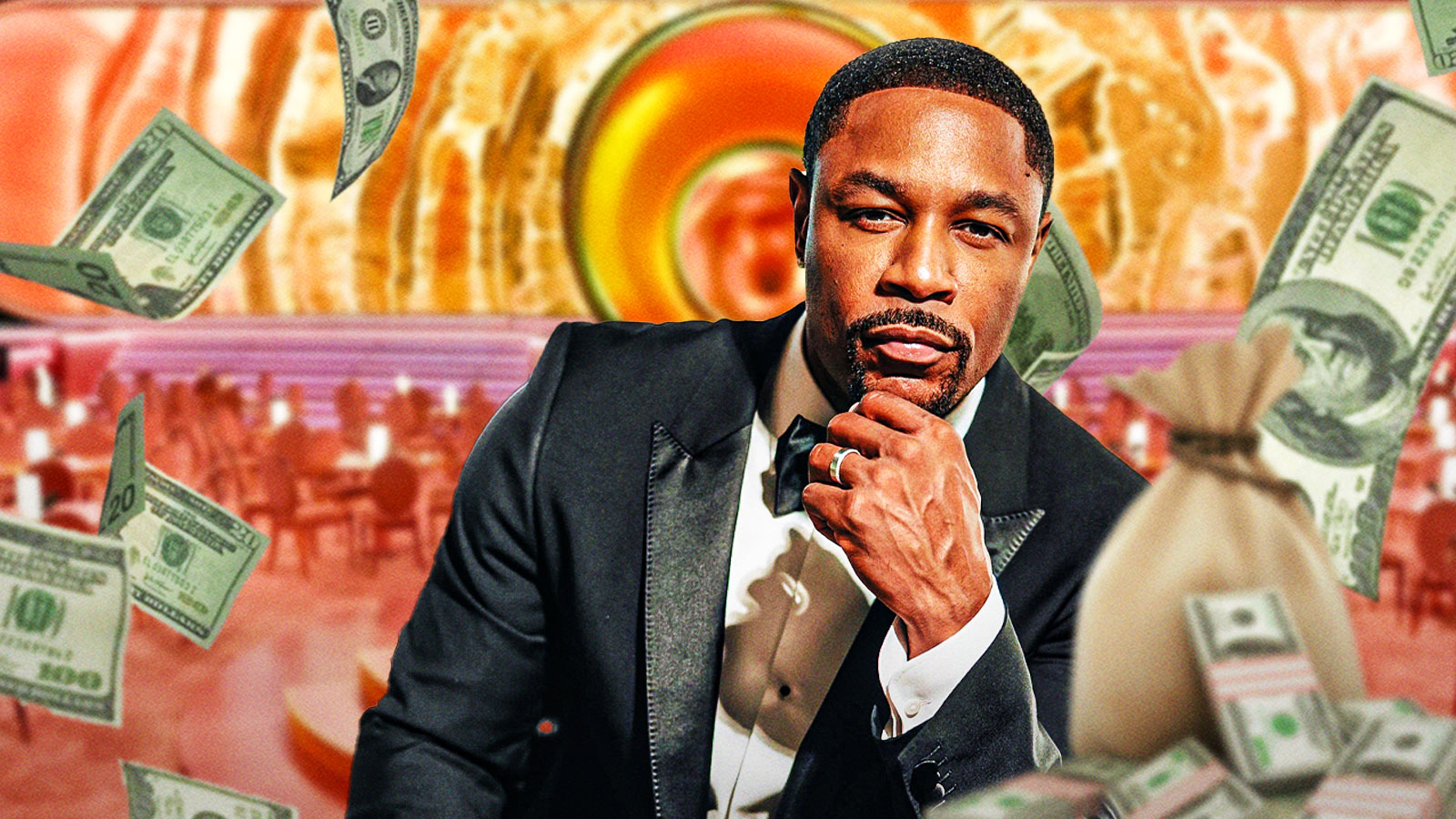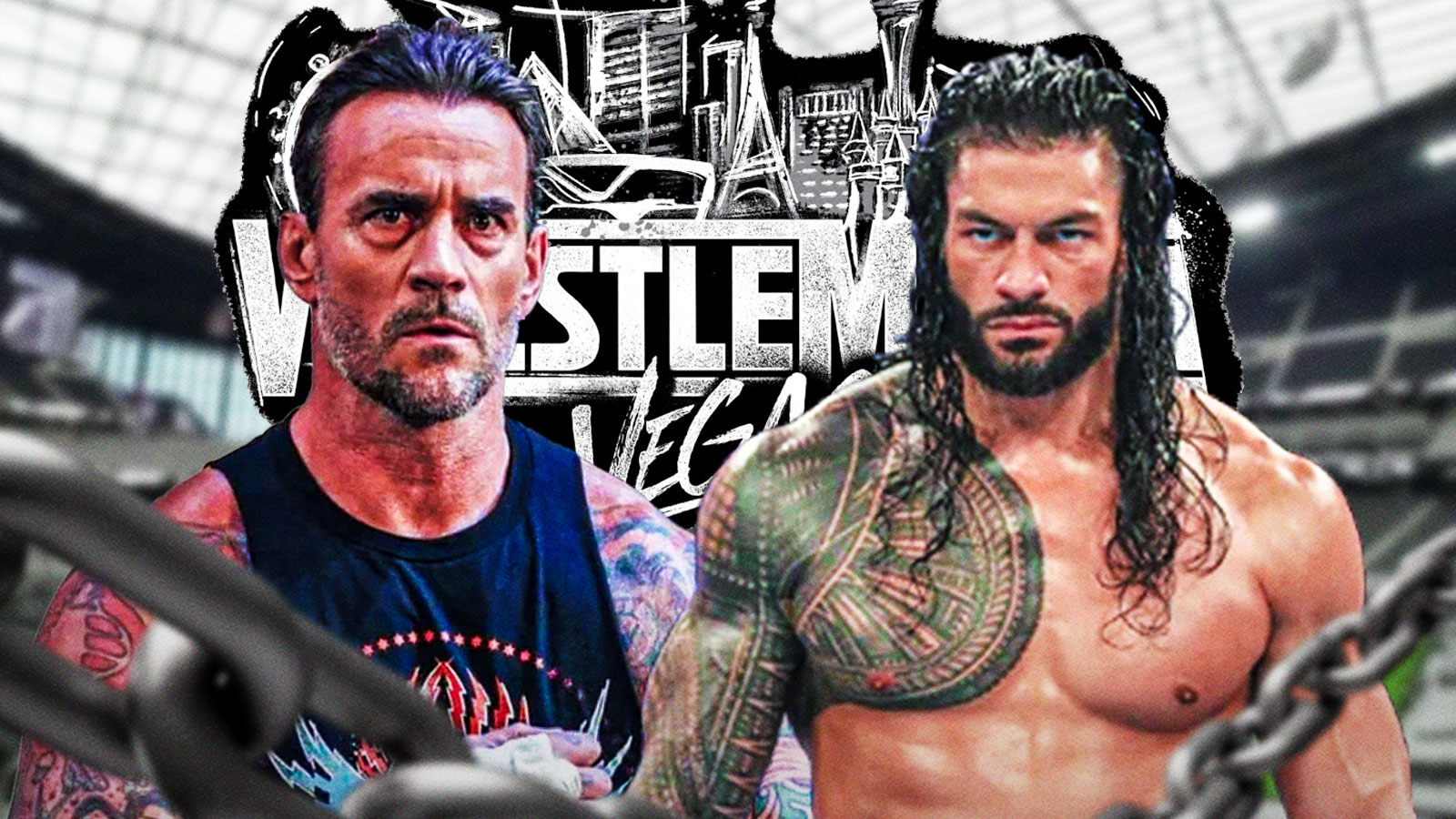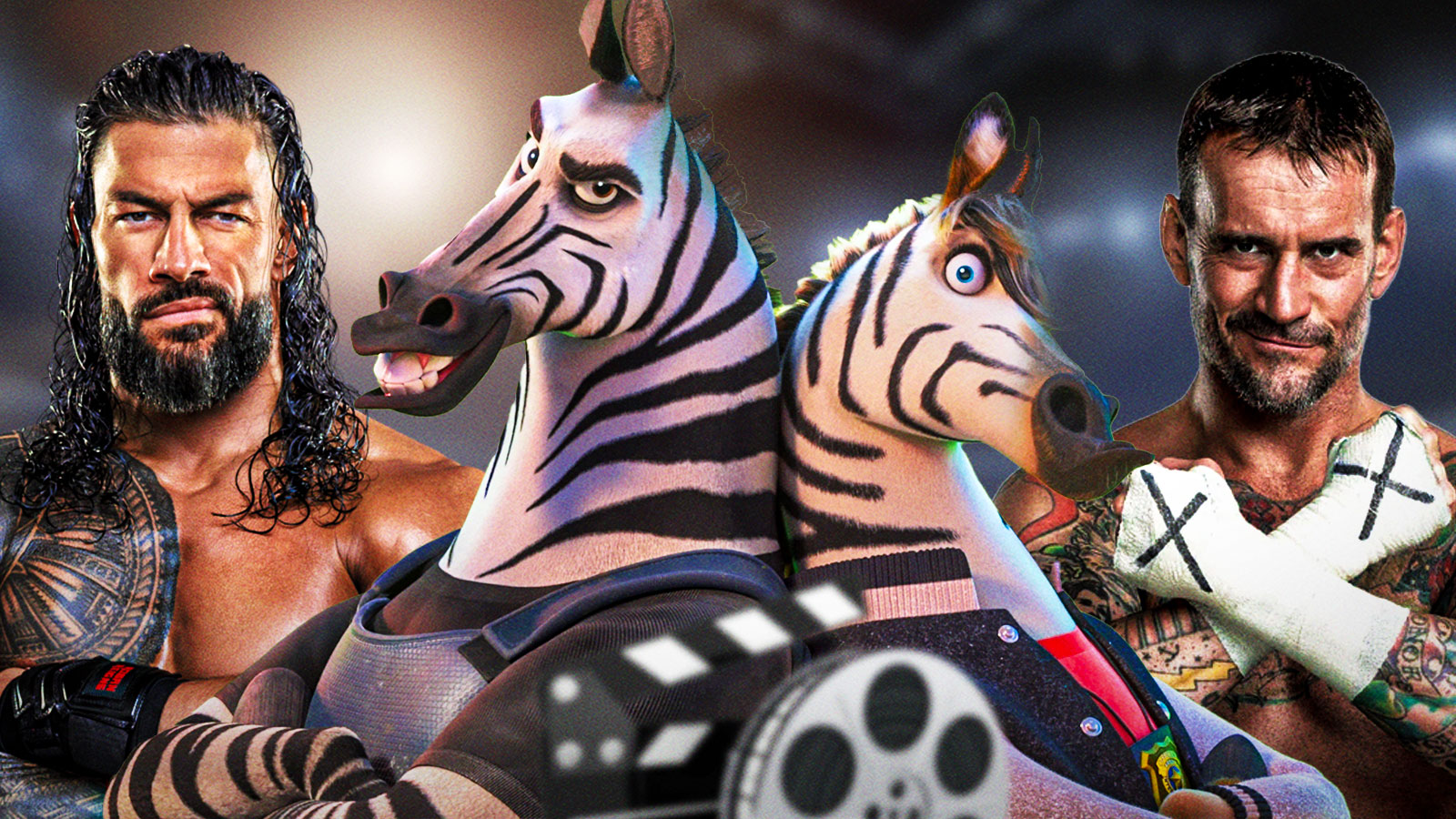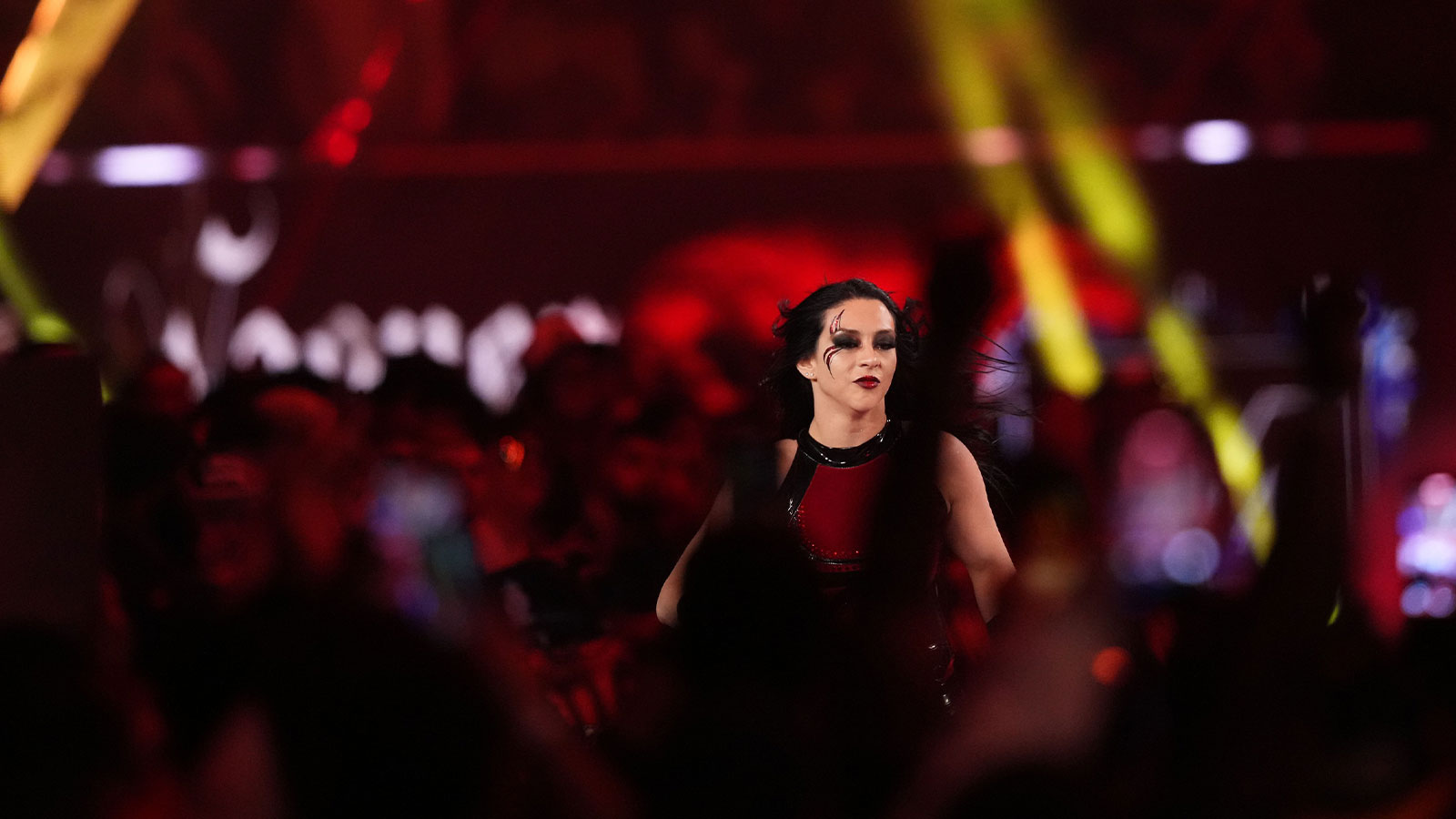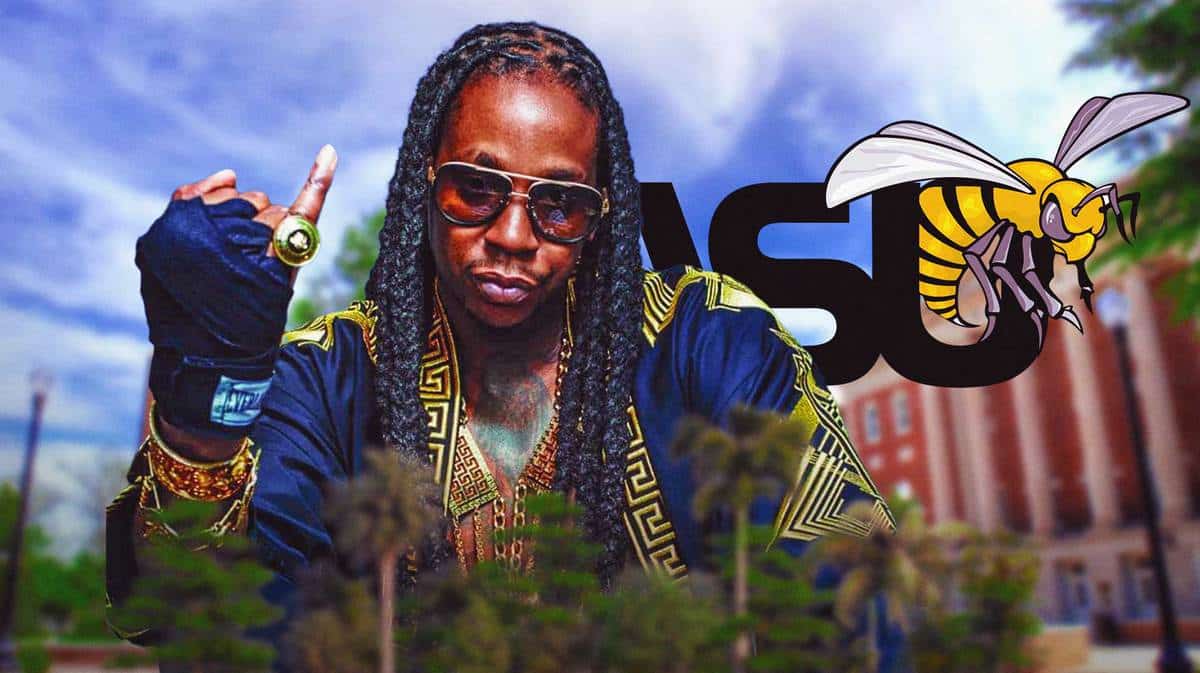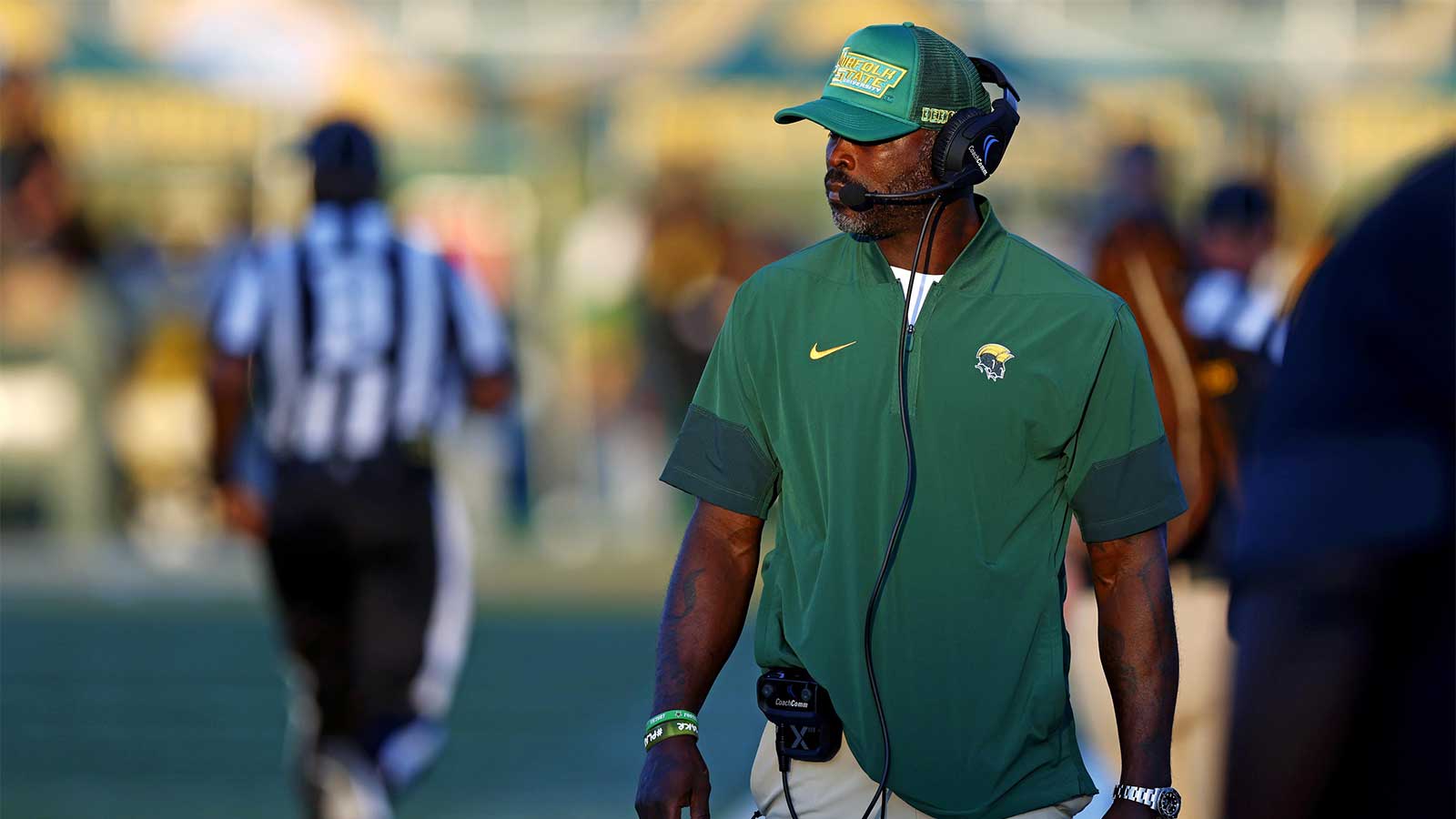Shōgun's fifth episode, Broken to the Fist, opens up with the men of the Ajiro village’s gruesome task of picking up the body parts and disposing of them. These are what remains of Nebara Jozen and his men.
The mean hear the thundering of hooves (great sound design, by the way). Thousands of them by the sound of it. We then see an army with red banners… It’s Lord Toranaga (Hiroyuki Sanada) at the head of it, but we don’t see his face. I like the cinematographic decision not to focus on him but on the vast number of his army.
Then we see Nagakado (Yuki Kura), pleased to see his father. I have a feeling this reunion will not be so pleasant as you think it is.
Shōgun's Broken to the Fist: This is not the reunion you think it is… or is it?
And then we see someone else with Toranaga. Nagakado realizes this as well and he calls for Lady Mariko (Anna Sawai).
“Look who it is.”
It’s Buntaro (Shinnosuke Abe), back from the dead. With all his armor, he doesn’t look as if he’s been attacked by dozens of samurai — except for the strategic drops of blood on his face.
This is another reunion that doesn’t look too happy either.
We see an aerial shot of a litter and then a shot of a woman walking in that distinctive Shosa tradition. According to the show’s Master of Gestures, Hannojoh, samurai and the women who belong their clans do not walk diagonally. Instead, they angle their feet toward each other in order to produce that movement we see Mariko and Fuji (Moeka Hoshi) perform seemingly so effortlessly: the glide.
The litter contains Lady Ochiba (Fumi Nikaido), the heir’s mother, and she’s set to return from Edo — Toranaga’s territory — back to Osaka. We know this since the Council of Regents — sans Toranaga — are discussing her return.
They’re still discussing his impeachment. Lord Ishido (Takehiro Hira) reminds them that Toranaga tried to circumvent this by resigning. Since the council needs all five votes, his resignation deprives them of the necessary quorum to actually impeach him.
The council are discussing his replacement, but couldn’t agree on anyone. It reminds me of the adage of having too many cooks spoiling the broth.
All of the members are jockeying for power and are therefore suggesting replacements that will be loyal to them. And with four remaining — two of them Christian — they’re at a stalemate.
I love Ishido’s expression when Lord Kiyama (Hiromoto Ida) couldn’t contain his coughing fit. That’s samurai-level side-eye right there.
We then go back to Ajiro where Toranaga and Mariko are on horseback on their way to hunt. Toranaga tells Mariko about how Buntaro escaped. He was aided by 20 ronin and by the end of it, it took 20 days to return and only two of the ronin left.
She hands him her translation of Blackthorne’s diary and he asks her to remain in Anjin’s home for the time being to continue her duties as translator. As for her husband, well, he’s to join her in the foreigner’s home. That’s going to be… cozy.
The Lord of Kantō isn't angry; he's just… disappointed.
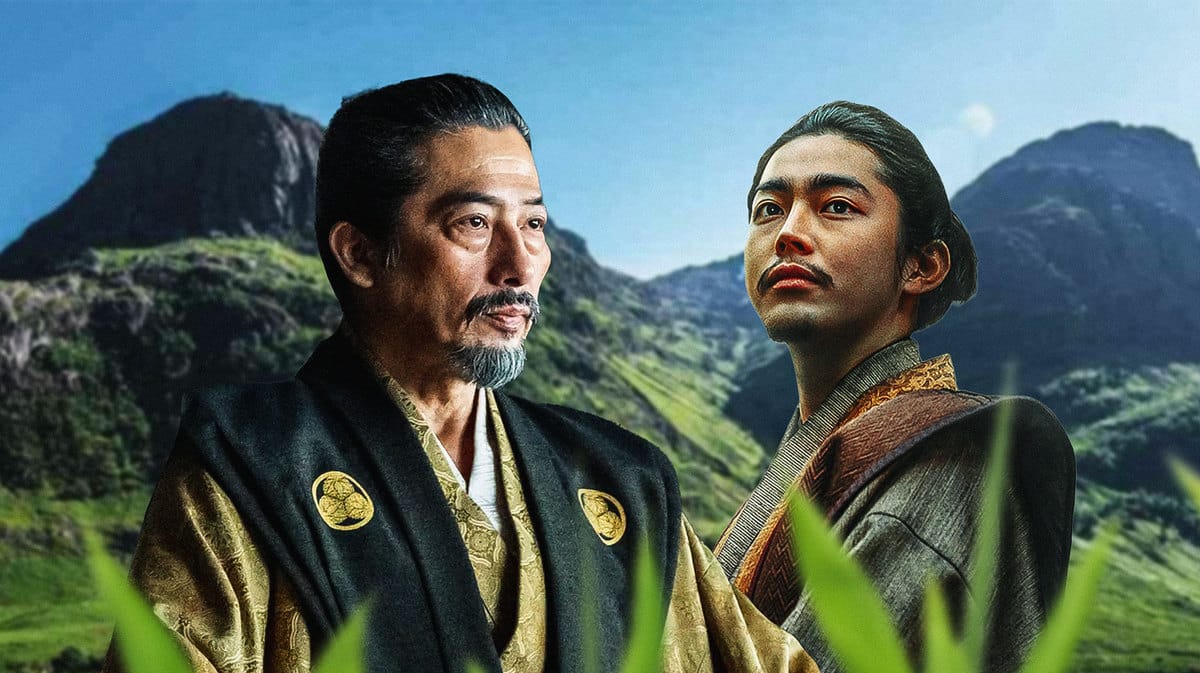
Nagakado appears and holds up a pheasant he’s caught. Toranaga scoffs and turns to ask Mariko if it was his son’s idea to murder Jozen. Toranaga looks every inch the disappointed father as he softly berates Nagakado. He outlines how it may not have occurred to him that his killing Jozen was playing right into Yabushige’s (Tadanobu Asano) hands. Or maybe it was his nephew, Omi (Hiroto Kanai).
The entire time, Nagakado refers to Toranaga as chichiue, the samurai way to address one’s father. Nowadays, most Japanese would refer to their fathers as otou-san or chichi. However, Toranaga, still smarting from his son’s fool-hardy decision, reminds him to call him “donno” or lord and that he’s not a child.
It’s the first time we see the Lord of Kantō lose his temper. He likens his son to being broken to another man’s fist, like a falcon but without the beauty. It’s not the gravest of insults, but made more effective since Toranaga is also carrying a falcon which he releases.
He turns this into a lesson for Nagakado: that all men can be broken, like falcons. If you learn when to release them at the right time, they will do the hunt for you. And until Nagakado learns (and understands this lesson), he will no longer be in charge of the cannon regiment.
I have little sympathy for Nagakado. He was too easily played by Omi (not really Yabushige) and let his overzealous desire to please his father get in the way of strategy. However, let’s also acknowledge that he’s young and that it must not be the easiest of times to be the son of a powerful man like Toranaga.
A box is presented to Ishido. In what might be the worst unboxing on screen, he opens it to reveal Jozen’s head.
Back to the island, Blackthorne receives the pheasant and is now airing the bird outside the home. Fuji tells him that the bird will end up rotting and will smell badly. However, he insists that as this bird is a gift from their lord, it must be the best bird the village has ever tasted. He instructs Fuji not to let anyone touch the bird.
And he utters the words that will prove to be one of the hardest lessons he’ll learn: “If touch — die!”
Fuji greets her uncle, Lord Toda aka Buntaro, who asks for his wife Mariko. She tells him she’s been ordered to attend to Toranaga at the camp. He complains that it’s bad enough that his wife must live with Anjin, and now he’s to be billeted there as well.
And Fuji continues to be a badass when Toda asks her what it’s like to be consort to a barbarian. She replies that she wouldn’t know as she’s consort to a hatamoto.
Yabushige: The samurai with many faces
Back at the camp, we’re treated to a reunion of Yabushige and Toranaga. Yabushige pledges his loyalty to Toranaga even in the face of becoming a fugitive (and his life forfeit) by refusing to return to Osaka.
However, his lord isn’t all that impressed by his declaration as he probes whether it was Yabushige who manipulated Nagakado into killing Jozen.
Yabushige offers the explanation that Toranaga’s son decided that Jozen shouldn’t be allowed to report on the cannons. Toranaga counters by saying that his son isn’t clever enough to think of that. Yabushige then throws Omi under the proverbial bus and promises to discipline him. But Toranaga seemingly sees Omi’s potential, calling him a promising young man, who found a way to force their enemy’s hand.
Thanks to Omi, Toranaga’s enemies have taken offense and will attack them on their own ground instead of in Osaka where the Lord of Kantō would surely lose. Now Omi is given command of the cannons.
Yabushige is still trying to find Toranaga’s spy. Failing to do so, he gives Omi the good news. Omi then says he will give the command to his uncle. I imagine Omi thought this would please Yabushige. Instead, he’s affronted at the thought that his nephew thinks the regiment belonged to him. So how could he give away to Yabushige what’s already his?
Elsewhere on the island, Blackthorne and Buntaro meet again. He greets him in Japanese, addressing him as Buntaro-sama or Lord Buntaro. However, he’s corrected that he should call him Toda-sama or Lord Toda. Buntaro is his nickname, one reserved for friends and family.
I love how Mariko adds the customary Japanese pleasantries when she translates Blackthorne’s well-wishes and invitation to the cannon demonstration to Toda.
He fires the first volley in what may be the start of a pissing contest: that his own bow can fly farther than the cannons.
Mariko, ever the diplomat, translates this somewhat neutrally by saying that a true samurai’s bow can outmatch a cannon. She continues this diplomacy over dinner as both men now moved on to see who can drink whom under the table.
And as with any drinking session, there should be stories. Blackthorne asks about Toda’s escape from Osaka. He refuses, but asks for Blackthorne’s instead.
Mariko advises him to tread carefully, but the combination of drink and maybe the tension of having too many people in one house has gotten to both men so Blackthorne continues to egg on Toda.
Toda, for his part, asks for a bow and arrow. He tells Mariko to translate for Blackthorne to choose which post to shoot. Blackthorne inadvertently chooses the post nearest Mariko. Anjin asks her to move, but she doesn’t as Toda pulls on the string to shoot. Buntaro shoots two arrows so close to Mariko’s face, but she doesn’t even flinch.
Blackthorne becomes offended for Mariko and tells her to relay to her husband that she deserves better from him. Toda scoffs at that and yells at Mariko to tell him her history.
She tells Blackthorne of how her father, Lord Akechi Jinsai, served Kuroda, the corrupt ruler before the Taikō. Note that Kuroda isn't referred to as shōgun here either.
Akechi killed Kuroda for the good of the realm. The Game of Thrones comparison can enter here. Think of Akechi as the Kingslayer. Only, instead of being spared, Akechi and his family were hunted down.
Akechi was forced to execute his own family before committing seppuku. The then newly married Mariko was not permitted to join her family in death. Ever since, on the anniversary of her family’s death, she asks Buntaro to “take action against this injustice” because her husband orders her to live. She reminds him of what he told her about the eightfold fence. That he would do well to keep certain parts of himself hidden away.
Blackthorne wakes to hear Mariko being beaten by Buntaro. He gets to her even after Fuji tries to stop him. However, Lord Toda had already left.
Outside, Blackthorne sees him and screams at him to stop. He clearly is spoiling for a fight, but is denied when Toda kneels to apologize for disturbing his home. He offers up the sake as his reason for the disturbance. Blackthorne can do nothing.
The next morning we see Muraji meeting up with Toranaga near the shore where he keeps the pigeons. Toranaga tells him that Yabushige is hunting for a spy and Muraji offers to surrender.
However, the Lord of Kantō refuses and acknowledges him as his long-serving prized samurai, Tonomoto Akinao. And also to find him another spy.
Meanwhile, the staff at Blackthorne’s house are at their wits’ end with the rotting pheasant. Fuji implores him to get rid of it due to the unpleasant smell. However, she doesn’t understand and he leaves to look for Mariko.
He finds her near the cliffs. They argue over their understanding of what freedom means. In the end, they both agree to disagree.
Blackthorne comes back to his weeping staff and his rotting bird missing. Fuji tells him that it was Uejirou who took him and asks to see the gardener. However, she tells him that he’s dead because of his instructions. And since it was Fuji who gave the order, she asks him to kill her. He doesn’t, but orders her and the rest of the staff to leave.
Blackthorne goes to the camp and tells Toranaga that since he has fulfilled their bargain, he’s now asking for his ship and his men for them to leave Japan and never return. But Toranaga doesn’t address that, instead preferring to note how there’s a shadow on both of them. Maybe it’s samurai-speak for wanting the tea between his retainer and his translator.
Blackthorne tells Mariko about what happened to the gardener as an example of how her people don’t seem to value life as he does. She counters by telling him that it was his order — taken as law by the people who live in his house — that killed Uejirou.
Toranaga decides to exit stage left because the argument wasn’t to his liking. Or maybe it was because it wasn’t the drama he was expecting.
The ground then starts shaking. This is nothing like the baby earthquake that Blackthorne had experienced before with Mariko. A massive landslide starts all around them. And Toranaga, who was having a moment near the cliff, falls.
Blackthorne and Nagakado, along with other samurai, dig him out of the ground. He’s alive, but he loses his swords. As he and the rest of them scramble to look for them, Blackthorne offers his.
When Anjin goes back to the village, he sees the destruction left by the quake. There are fires everywhere and almost all of the houses have collapsed.
When he returns to his house, he sees an injured Fuji being tended to by the servants. He then goes to the garden and starts stacking up the rocks the way he saw his gardener do it.
Mujiro shows Omi and Yabushige evidence of Uejirou as the spy, the evidence only unearthed after the earthquake.
The litter we saw earlier now arrives at Osaka Castle. The young heir greets his mother, Lady Ochiba. And in turn, Ishido greets her. Their conversation tells us that they may be allies against Toranaga.
To become Shōgun, you win or you die…
But more than that, Lady Ochiba shows a part of her hand: now that the council has been outmaneuvered by Toranaga, they now have to answer to her. What’s impressive is she says this in such a pleasant tone and a determined face.
This is what sets this Shōgun apart from both the novels and the miniseries in the ‘80s.
While James Clavell’s book and the Richard Chamberlain-led TV series focused on the Western view, FX’s spotlights that of the Japanese.
So many of the details in the show, as I have mentioned in my previous reviews, are painstakingly Japanese. Anjin is very much the foreigner here and he is not the narrator.
The story is told through the eyes of the samurai — both the warriors and the women who keep their homes.
Another impressive feat for Shōgun is how Fuji, Mariko and now Ochiba, while seemingly in the background, are portrayed as strong women. They have their own motives and neither are they shown as just paragons of whatever virtue is assigned to them.
Personally speaking, I don’t know if it’s just my being Asian (and thus a life-long consumer of Asian media), but it never ceases to amaze me how two formidable actors in their home country, Asano and Sanada, now star in a Hollywood production. It’s been a long time coming, yes, so it’s quite a treat to watch them in a project like this.
We're halfway through Shōgun, and this one is another great episode and while it’s not the start of the war as I thought it would be, it does move forward.
Toranaga is dealt with a blow due to the earthquake, but I believe he’ll bounce back.
Blackthorne’s guilt over his gardener’s death may very well be what distracts him from asking to leave.
Mariko is more resolved in keeping her distance from the Anjin.
Fuji is coming to her own. She’s making do with the cards she’s dealt with and she’ll keep carrying on. I wonder what she’ll make of her lord now carrying her father’s swords — despite the falsehood she was led to believe.
And as for Lady Ochiba: I’m looking forward to seeing more of her in Shōgun's upcoming episodes.

